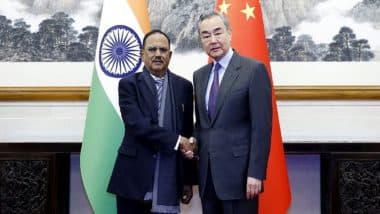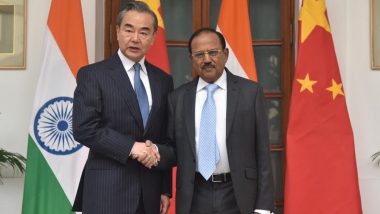New Delhi, May 28: India is one of the countries which registers' a large number of neonatal deaths. Statistics peg the neonatal mortality rate in the country at 0.75 million per year. 35 percent of these can be attributed to preterm birth and low-birth weight. The findings of a recent ongoing study indicate that although the number of neonatal deaths due to asphyxia, infections, pneumonia, diarrhoea, and measles has declined, those due to prematurity have increased by one percent in the same period (2000 to 2015). Two major reasons for this are prematurity and low-birth weight.
Of the many ways to prevent mortality among newborns is Kangaroo Mother Care (KMC). "The term 'Kangaroo care' emerges from the physiology of the kangaroo. Kangaroos are only the size of a peanut at birth and resemble a human preterm baby. They receive the much-needed thermal regulation in the mother's pouch where they then latch on to the nipple. The babies remain there until they have grown to a quarter of the mother's weight," said Dr M Udaya Kumar Maiya, Portea Medical.
In humans, babies are cleaned after birth and laid on the mother's bare chest. Both of them are then covered with a warm blanket and left in the same position for about an hour until the baby gets its first feed. Apart from increasing bonding between parents and babies, this technique also paves way for better physical and developmental outcomes for the newborn.
"Kangaroo care or the technique of skin-to-skin contact is usually apt for babies born prematurely or those that are critically ill. However, it has benefits in general too for both the mother and the infant. Apart from boosting the baby's immunity, it helps in keeping it warm, stabilizes heart rate, and promotes brain development and weight gain. It helps the mother to bond better with the baby and reduces postnatal stress and the likelihood of depression. It also helps in enhancing the production of milk in new mothers and gives them confidence to handle the infant. The need of the hour is to create awareness about the benefits of Kangaroo care in India," said Dr Sunita Arora, Fortis La Femme Hospital, Delhi.
- Aids bonding: Many mothers may not be able to bond with their babies immediately, contrary to popular assumptions. However, skin-to-skin contact can induce a sense of bonding by calming the baby and building a mother's confidence in handling the newborn.
- Helps in brain development: Skin-to-skin contact is known to boost those areas of the brain which are responsible for social and emotional development. Research indicates that parents who practices KMC every day for some time had babies who slept better, reacted well to stress, had a well-functioning nervous system and better thinking skills.
- Better breathing: Premature babies do not have well-developed lungs and KMC can improve their oxygen saturation levels.
- Helps in regulating temperature: Most often, premature babies are put inside an incubator to warm them up. However, healthcare specialists are now vouching for the benefits of KMC in improving a newborn's body temperature in just under half an hour - a human and natural incubator.
- Eases breastfeeding: Skin-to-skin contact helps make breastfeeding easier as babies can latch on to their mothers without external assistance. It also boosts the mother's hormones thereby increasing the milk supply.
- Can help reduce postpartum stress and depression: Skin-to-skin contact relaxes the mother and reduces the chances of postpartum depression in the longer term. This is because the technique helps release oxytocin, which is found to be effective against postpartum depression."Among all the interventions to reduce neonatal mortality, KMC is perhaps the most inexpensive and easy to implement. Despite this, there are many challenges in implementing it on a large scale in India. The country has available expertise in KMC and given the right boost, this technique can accrue many benefits to the mother and the baby, apart from saving infant lives. By creating a safe and enabling environment, it can also help in reducing the burden of healthcare providers," concluded Dr Maiya.













 Quickly
Quickly




















